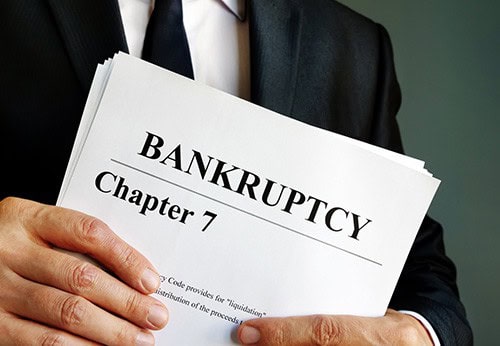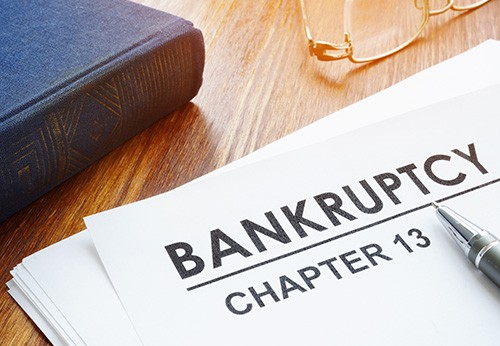What Does Bankruptcy Entail?
Are you having a hard time financially? Are the creditors constantly calling about outstanding balances? Do you wonder if you should investigate bankruptcy to see if it is right for you?
Bankruptcy has its pros and cons. First, bankruptcy is defined as a federal legal process where individuals and businesses can get unaffordable debt reorganized and forgiven, meaning that they are no longer accountable for repaying the debt.
There are several types of bankruptcy and consulting with a bankruptcy lawyer on which one you should go with is essential to help reduce your stress on all your outstanding bills. As soon as you file bankruptcy, all collection attempts must stop. Creditors must alter the way they attempt to get money from you.
We Are Here To Help. Call Today For A No Cost Evaluation. | (443) 492-9003
Facts About Bankruptcy
 Bankruptcy is a tool that people use to help them get out of debt. The creditor is the person that is owed money. The debtor is the person filing for bankruptcy. There are different types of people who can be considered a debtor such as:
Bankruptcy is a tool that people use to help them get out of debt. The creditor is the person that is owed money. The debtor is the person filing for bankruptcy. There are different types of people who can be considered a debtor such as:
- An individual person
- A married couple filing jointly with their significant other
- A married couple filing separately
- A business owner
- Chapter 7 Bankruptcy
- Chapter 11 Bankruptcy
- Chapter 12 Bankruptcy
- Chapter 13 Bankruptcy
Process Of Filing Bankruptcy
Before you file for bankruptcy, there are a few things that you need. There is more to filing for bankruptcy than just filing out an application and submitting it to the court. First, you need to gather all your financial information which includes a list of all your creditors and debts, all your income information, and all your assets. Then you need to determine what bankruptcy chapter is best suited for you. You will also need to complete a credit counseling course. Once you have all of this information, and the credit counseling course is completed, you can fill out your petition for bankruptcy which is over 20 forms and over 60 pages in total. This is a lot of tedious paperwork, and consulting with a Bankruptcy lawyer can greatly lessen the confusion this paperwork can cause. After filing your petition for bankruptcy, a bankruptcy trustee will be assigned to your case to assist you in managing your repayments. Depending on what Chapter of bankruptcy you file, the judge may discharge your bankruptcy in three to six months. Chapter 7 and Chapter 13 are the most used.Chapter 7 Bankruptcy
Chapter 7 bankruptcy is constructed to “wipe out” or erase your credit card debt, medical debt, and other unsecured debts that you cannot afford to repay. To qualify for Chapter 7 bankruptcy, your average annual income must be below the median income in Pennsylvania before you can qualify. This is calculated by the Means Test, which is a test that calculates your income and compares it to other residents of Pennsylvania. Chapter 7 bankruptcy will last approximately six months to complete from the first filing date to your discharge. For more information, consult a Chapter 7 bankruptcy lawyer for assistance.Chapter 11 Bankruptcy
Chapter 11 bankruptcy is used by businesses to help with the reorganization of the debtor’s business debts. This will give the business time to restructure its debts. If you would like to learn more about Chapter 11 bankruptcy, contact a Chapter 11 bankruptcy attorney.We Are Here To Help. Call Today For A No Cost Evaluation. | (443) 492-9003
Chapter 12 Bankruptcy
 Chapter 12 bankruptcy is specific to farmers and fishermen who have a regular income. Chapter 12 bankruptcy allows them to propose and carry out repayment of their debts over the course of three to five years. For more information, contact a Chapter 12 bankruptcy lawyer.
Chapter 13 Bankruptcy
Chapter 13 bankruptcy will allow you to keep your property that you wouldn’t be able to keep in Chapter 7 bankruptcy. To qualify for Chapter 13 bankruptcy, a person’s income must be above the median income in Pennsylvania. Chapter 13 bankruptcy is to allow people to adjust their debts to a more affordable monthly payment. A payment plan is set up either bi-weekly or monthly, depending on the person’s income.
The Nager Law Group Is Here To Assist
The Nager Law Group is in Philadelphia, Pennsylvania and their attorneys are here to assist you. Their team of attorneys is committed to helping you get back on track financially. They are there every step of the way to help you become stress and debt free.
Chapter 12 bankruptcy is specific to farmers and fishermen who have a regular income. Chapter 12 bankruptcy allows them to propose and carry out repayment of their debts over the course of three to five years. For more information, contact a Chapter 12 bankruptcy lawyer.
Chapter 13 Bankruptcy
Chapter 13 bankruptcy will allow you to keep your property that you wouldn’t be able to keep in Chapter 7 bankruptcy. To qualify for Chapter 13 bankruptcy, a person’s income must be above the median income in Pennsylvania. Chapter 13 bankruptcy is to allow people to adjust their debts to a more affordable monthly payment. A payment plan is set up either bi-weekly or monthly, depending on the person’s income.
The Nager Law Group Is Here To Assist
The Nager Law Group is in Philadelphia, Pennsylvania and their attorneys are here to assist you. Their team of attorneys is committed to helping you get back on track financially. They are there every step of the way to help you become stress and debt free.